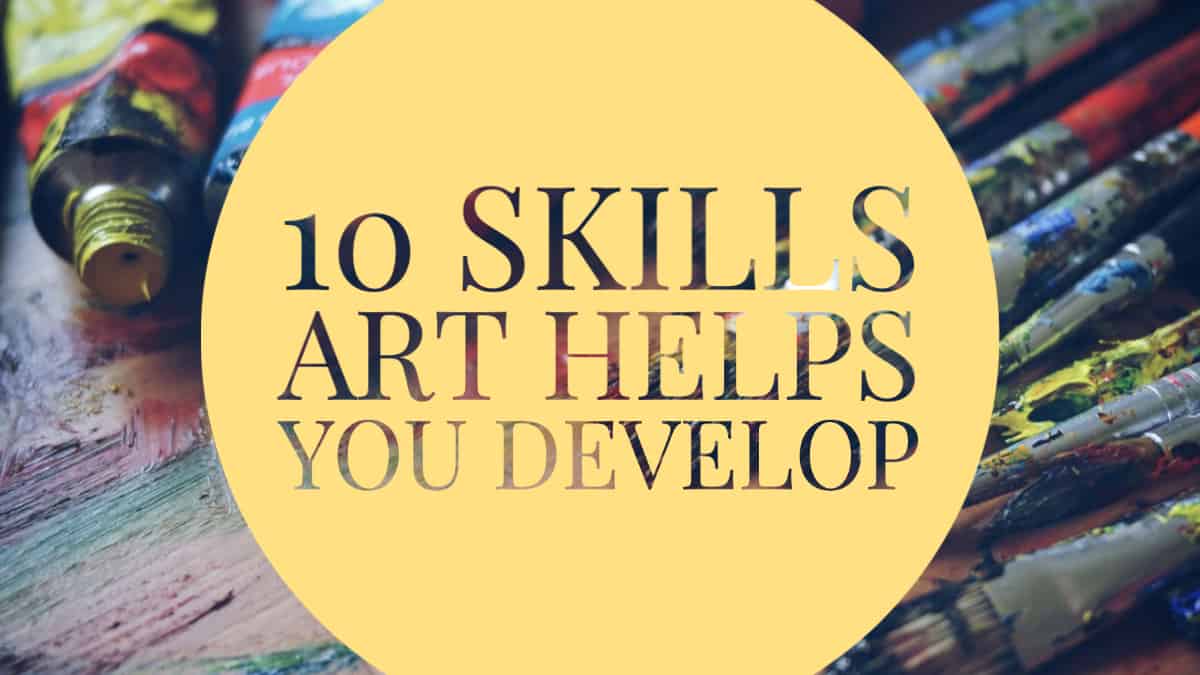Embarking on an artistic journey offers valuable benefits at any stage of life. Engaging in the arts is not just a creative outlet but a means to cultivate key skills that can profoundly impact your life.
The top 10 transformative skills fostered through artistic endeavors include Creativity, Observation, Self-expression, Memory, Focus, Concentration, Discipline, Perseverance, Collaboration, and Risk-taking. No matter your age, embracing any form of art can significantly develop these essential skills, proving that it’s never too late or too early to start exploring the world of art.
Table of Contents
- 10 Essential Life Skills Gained through Artistic Pursuits
- Frequently Asked Questions
- Related Questions
10 Essential Life Skills Gained through Artistic Pursuits
Embarking on a journey into the arts offers enriching experiences and skill development, regardless of age or background. Engaging in artistic activities goes beyond mere creative expression; it cultivates a range of life-enhancing skills.
This exploration highlights the top 10 transformative skills that one can develop through the practice of art, revealing how art can be a powerful tool for personal growth and development.
Art Helps Develop Creativity
Art helps to develop your creativity. When a person is creative, they are going into the unknown. This is why when things happen or changes take place in life, a creative person can better deal with and adapt to that change.
In speaking about creativity, the actress Mary Lou Cook said:
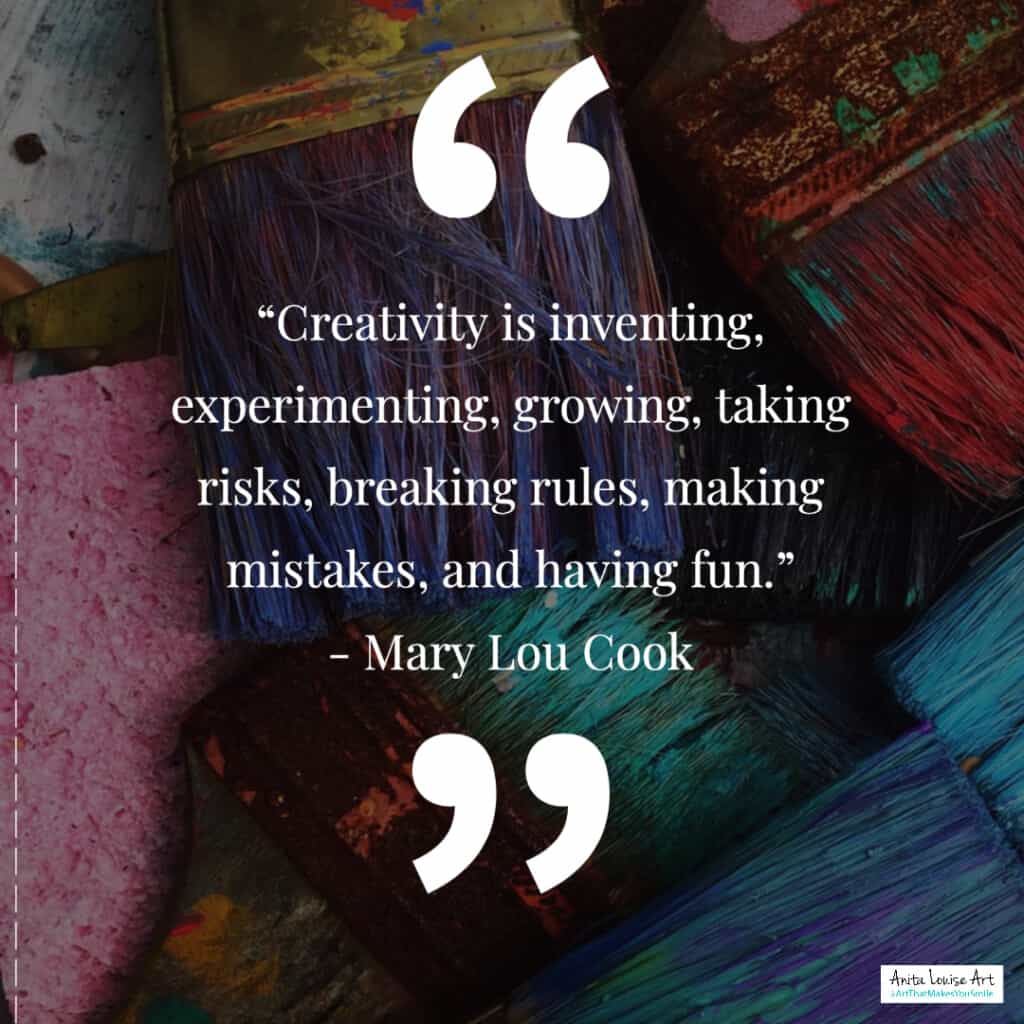
“Creativity is inventing, experimenting, growing, taking risks, breaking rules, making mistakes, and having fun.” – Mary Lou Cook
Unlocking the Power of Creativity: Key Benefits of Nurturing Your Creative Spirit
There are many benefits to developing your creative spirit. Here are some of the benefits of using and developing your creativity:
- Creativity is multidisciplinary – Developing your creativity can help you across many mediums and benefit almost all aspects of your life.
- Creativity reduces stress and anxiety – Being creative can help you deal with stress and anxiety. Just being creative can give you a sense of contentment.
- Creativity is fun – No matter what age you are and when you start your creative projects, you will have fun doing it. It is a form of play and enjoyment.
- Creativity gives a sense of accomplishment – Creativity can give you a sense of accomplishment. No matter what you do, completing a piece of art can give you a great sense of having accomplished something.
- Creativity encourages learning – No matter what form of creativity or art you do, you must study and learn about that art. Creativity encourages you to want to learn, and grow while challenging yourself and your abilities.
Observation In Art Is Essential
Observation is a very important part of the arts. Artists develop a keen sense of observation. Suddenly you start to look at the shadows on someone’s face to remember how it should be painted or how the hair on a dog curls around its face. These are the kinds of things that artists start to observe with a keener eye.
The photographer Elliott Erwitt said it best when we spoke about the role of observation and art:
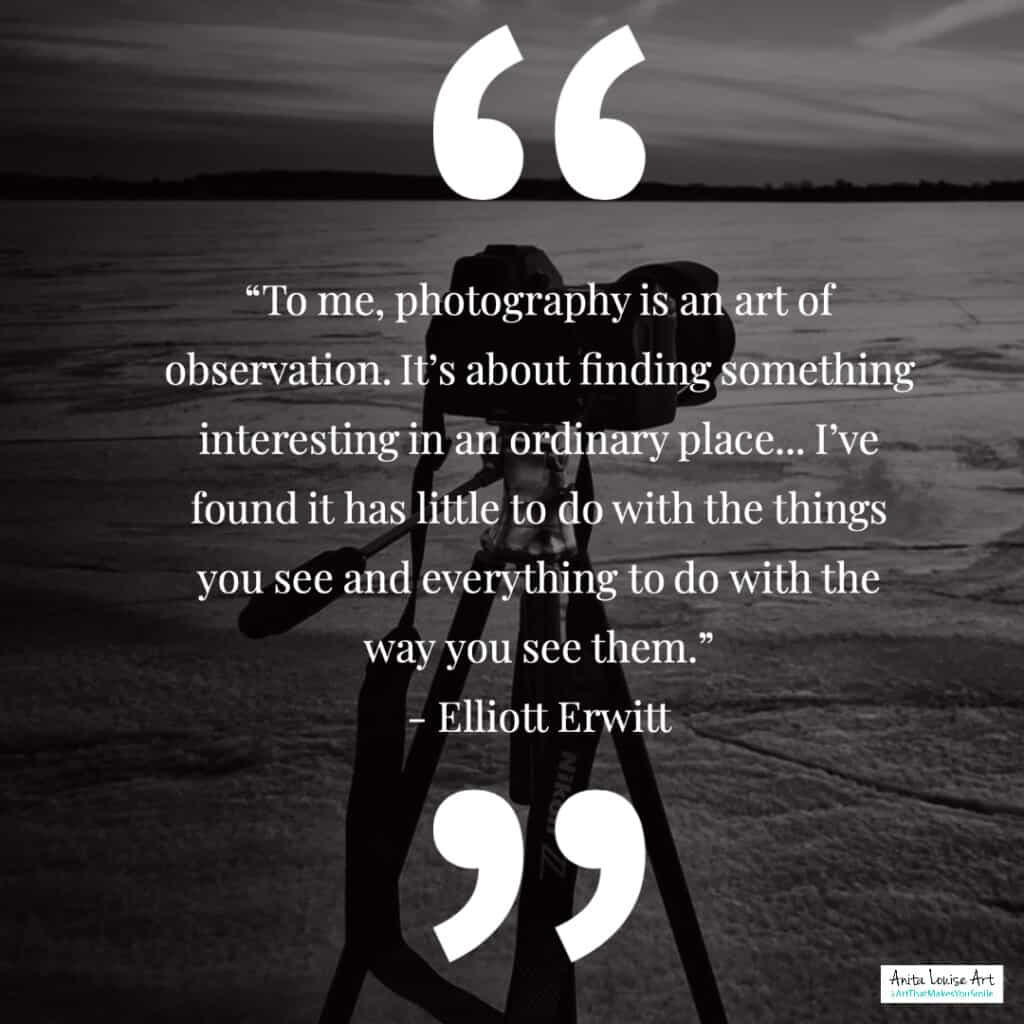
“To me, photography is an art of observation. It’s about finding something interesting in an ordinary place…I’ve found it has little to do with the things you see and everything to do with the way you see them.” – Elliott Erwitt
Art Helps You Explore Self-expression
Art is about self-expression and learning about who you are. The more you discover your artistic path, the more you also find out who you are.
I have found this in my own art. I always loved animals, and so I take great pleasure in painting dogs cats, and other animals in how I see them. I also discovered that I am attracted to brighter and bolder colors. This is just part of who I am as an artist.
I really love this quote by the artist Anawanitia, as I also believe that art is about discovering who you are.
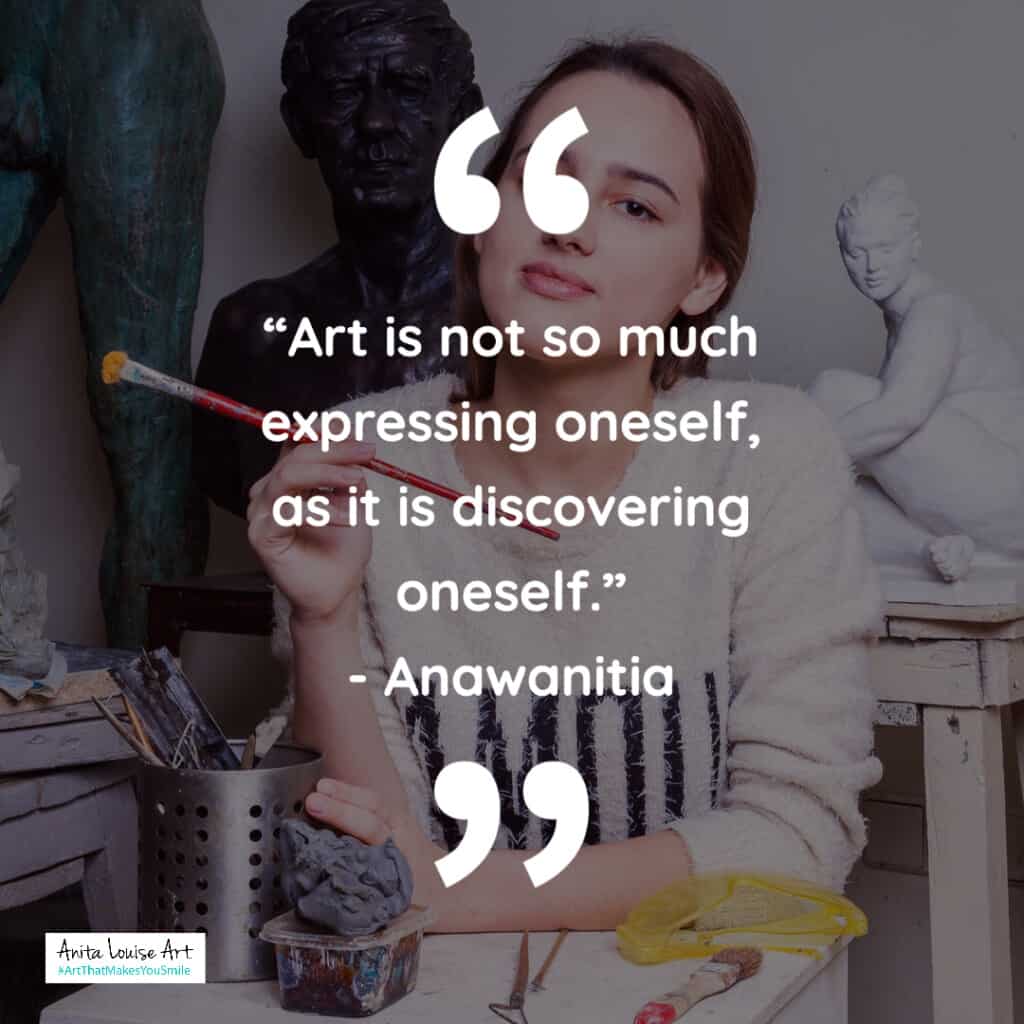
“Art is not so much expressing oneself, as it is discovering oneself” – Anawanitia
Art Helps You Develop Memory
Art helps you to develop your memory. You see a beautiful flower, and you want to memorize it so that when you paint it, you remember it. Or the sunset you just witnessed this evening. You start to put the memory of this in mind so that you can recall it a future time and put it on canvas.
If you want to develop a keen memory, start painting. When you observe the world, try to put some of your observations in your memory bank to recall when you are painting.
The French writer Andre Maurois has this great quote about memory and our artistic pursuits:
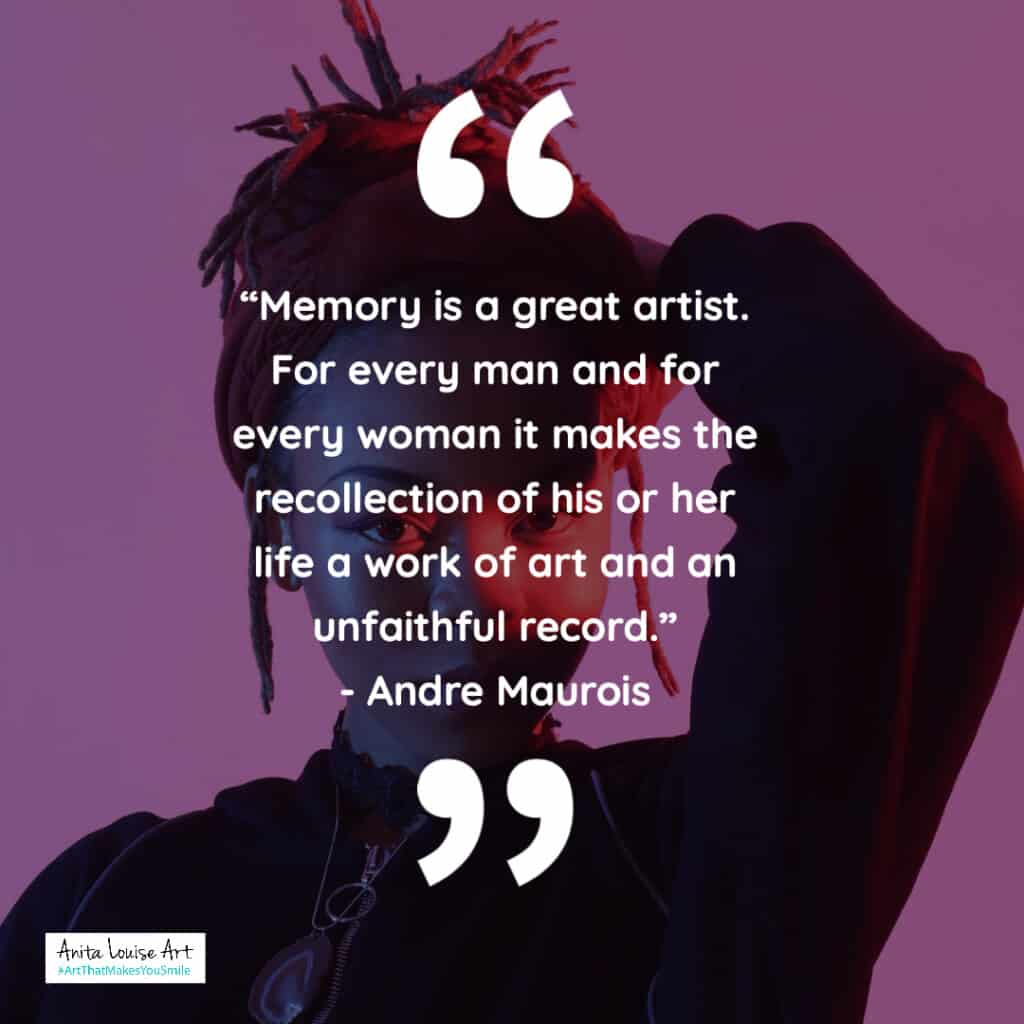
“Memory is a great artist. For every man and for every woman, it makes the recollection of his or her life a work of art and an unfaithful record.” – Andre Maurois
Art Helps Your Focus
Any kind of art will also help you to gain focus. Focusing takes our attention. To do any kind of art form, you must focus on that art form to be good at it.
Focus refers to your ability to give something the center of your interest or narrow attention. In more simple terms, this means that even when you are not painting you are thinking about what you will paint next. Painting and art have become an area of your life that you are focused on.
Jock Sturges, the American Photographer, in speaking about giving an art form our attention and focus said it best when he said:
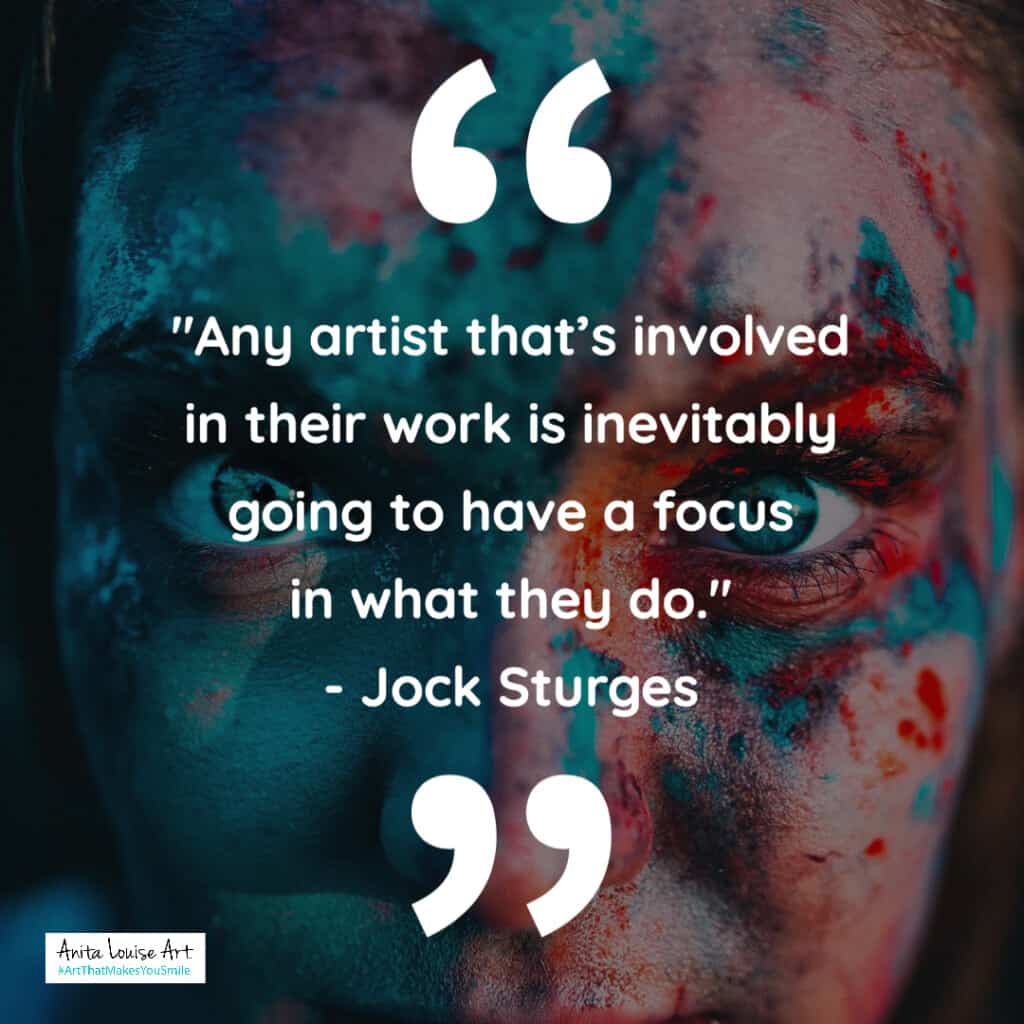
“Any artist that’s involved in their work is inevitably going to have a focus in what they do. – Jock Sturges
Art Builds Concentration
Doing any kind of painting or art helps your concentration. Many people confuse focus and concentration as they are so similar. Still, there is a difference in that concentration is when your full attention is on what you are presently doing.
To be able to paint or do any art form well, you will need to have the ability to concentrate on it while you are actually doing it. You will need to give it your undivided attention.
As the golfer Arnold Palmer so eloquently said about concentration, it is about paying your undivided attention to the task at hand. He said:
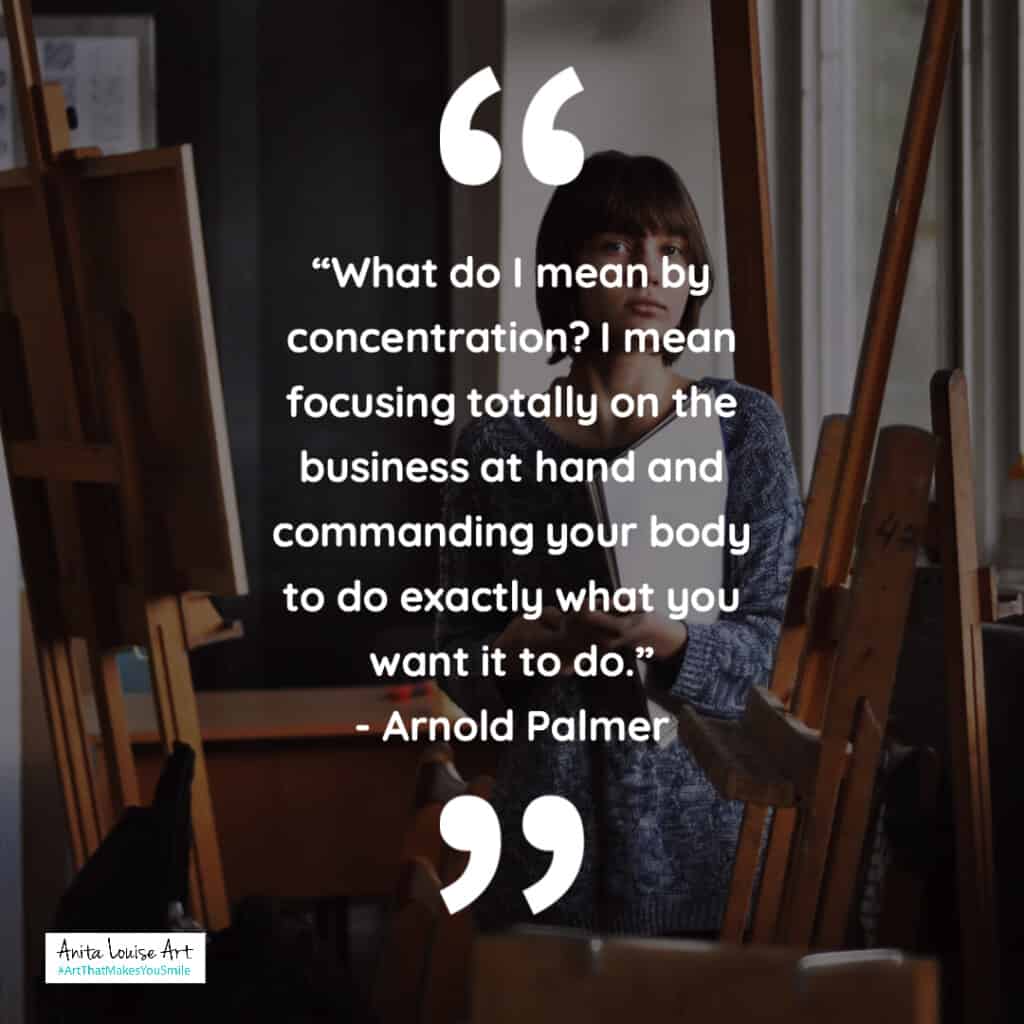
“What do I mean by concentration? I mean focusing totally on the business at hand and commanding your body to do exactly what you want it to do.” – Arnold Palmer
Art Teaches Discipline
Any kind of art will teach you discipline. You must be disciplined to seek to constantly improve your art form if you ever hope to get proficient in what you are doing. All kinds of art will help you develop discipline.
The famous sculptor Henry Moore said it well when he said:
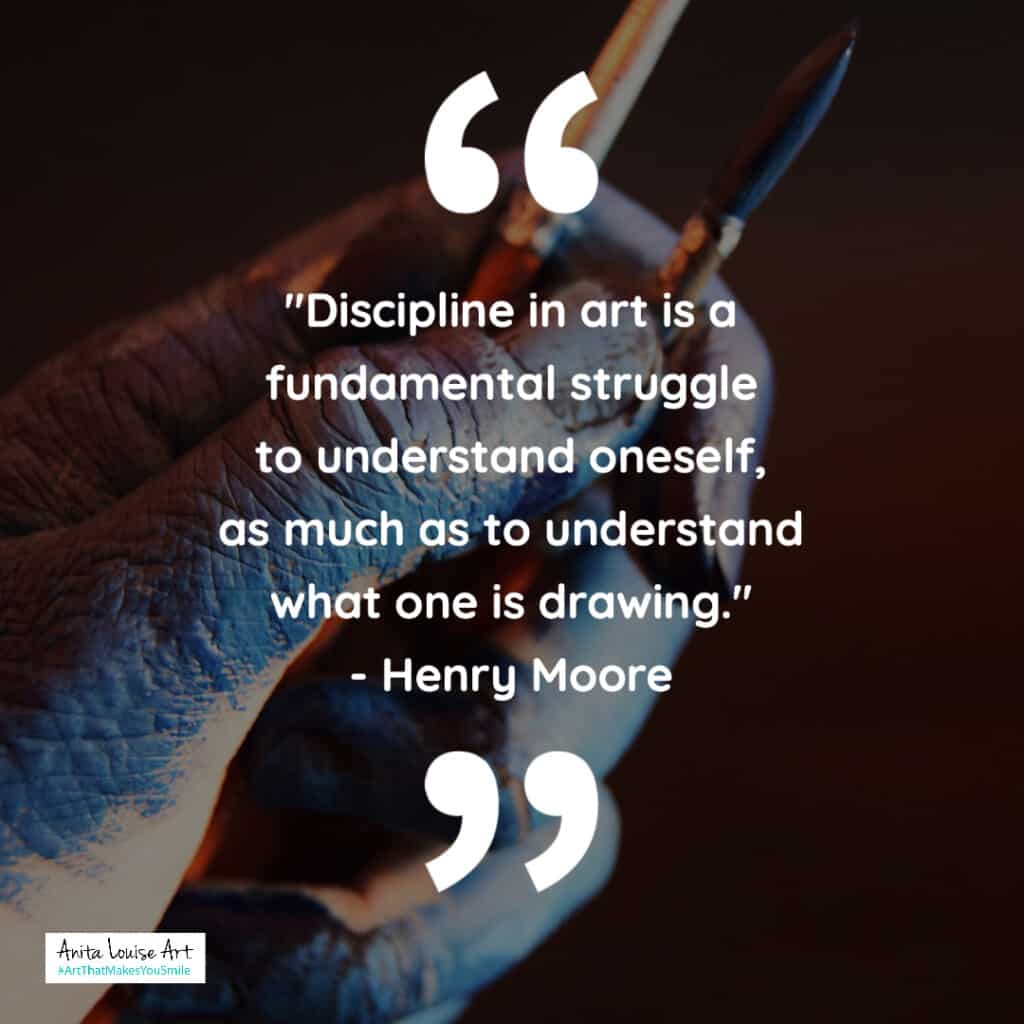
“Discipline in art is a fundamental struggle to understand oneself, as much as to understand what one is drawing.” – Henry Moore
Art Helps You Master Perseverance
Learning and mastering any kind of art takes a lot of time. I have discovered that art is a journey, not a destination.
What I mean by that is that I will spend my entire life trying to master the art of painting. I will be constantly trying to learn new things and master new techniques. It will be a journey and not a place I arrive at after a certain amount of time or education.
This is why art will help to teach you perseverance. You will constantly be working on and improving on any kind of art. That is just the nature of being an artist.
The famous artist Pablo Picasso said it best when he pointed out that many do not keep up the perseverance of their art as they get older when he said:
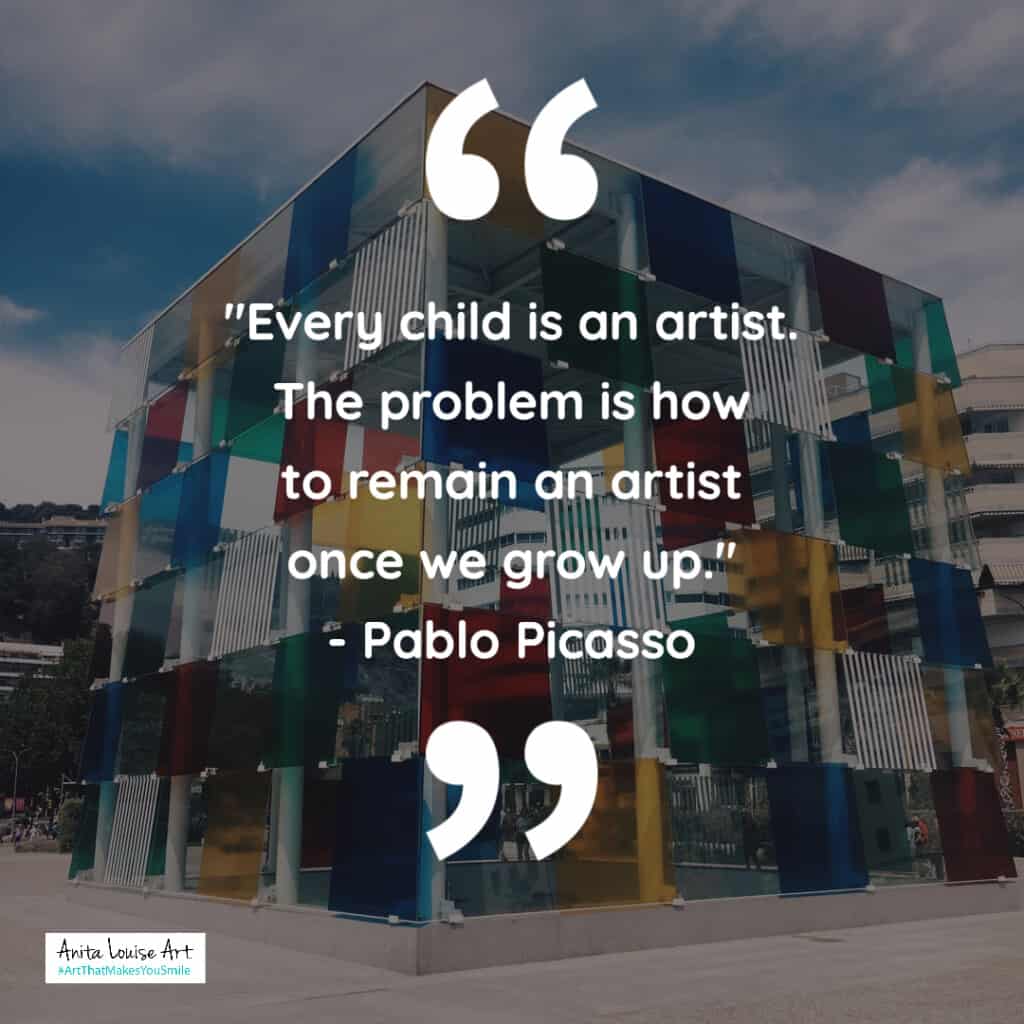
“Every child is an artist. The problem is how to remain an artist once we grow up.” – Pablo Picasso
Art Fosters Collaboration
Being an artist can help you to learn to collaborate. Though many artists work independently, others work in groups and band together. A great example of this was the Impressionists in that many of them would work together as a group or look at each other’s work. There is a community of artists out there waiting to collaborate with you.
The musical artist Sharon Van Etten said this about collaboration and how collaboration can help all artists.
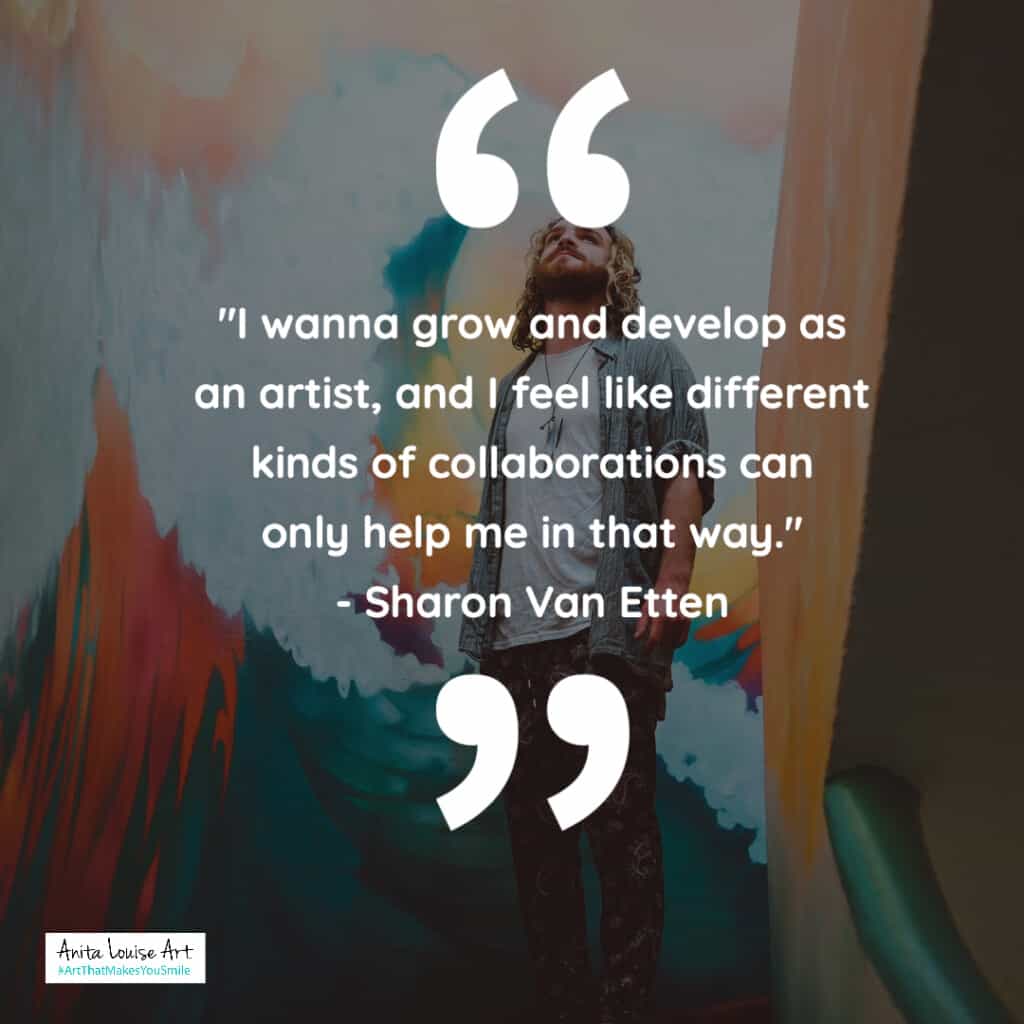
“I wanna grow and develop as an artist, and I feel like different kinds of collaborations can only help me in that way.” – Sharon Van Etten
Arts Teach About Risk-taking
Putting that first stroke of a brush on a piece of canvas is risky. You may have an idea of how it will turn out, but you may not be completely sure. You are taking a risk by putting that very first brush stroke on a blank canvas.
This is why many say being an artist helps teach some skills about risk-taking. I know from experience and experimenting that some of my artistic experiments work out and others do not, but they have taught me to keep trying.
I have seen this also develop in other areas of my life where I am not afraid to change a food recipe to try something new. That is the creative side of me taking some risks that others may not take.
I love this quote by one of my artist heroes, Vincent ‘Van Gogh. I love how he encourages us to keep taking risks and trying new things when he says:
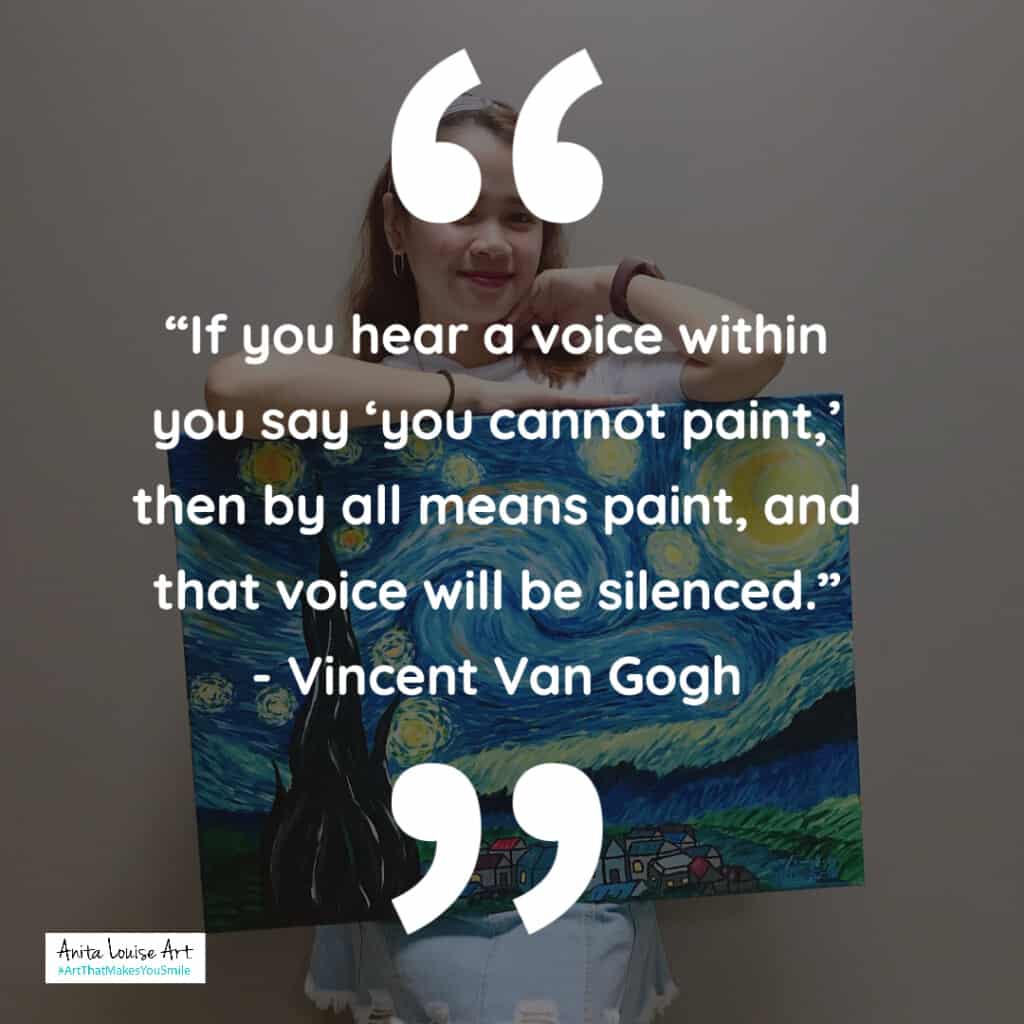
“If you hear a voice within you say ‘you cannot paint,’ then by all means paint, and that voice will be silenced.” – Vincent Van Gogh
One of the significant side effects of any art you pursue is that it will help you to learn and develop positive lifelong skills. And one of the great things about art is that you are never too young or old to start learning a new art form.
Just begin by making that first brush stroke on the canvas. Embark on this journey and discover the marvelous art realm.
Frequently Asked Questions
How does engaging in art enhance creativity?
Art encourages thinking outside the box, experimenting with new ideas, and finding unique solutions, all of which contribute to the development of creative thinking.
In what ways does art improve observation skills?
Creating art often involves paying close attention to details, colors, and forms, honing your ability to observe the world around you with greater depth and clarity.
Can art be a tool for self-expression?
Absolutely! Art provides a powerful means of expressing emotions, thoughts, and personal experiences, allowing individuals to communicate and understand themselves on a deeper level.
How does engaging in art enhance memory?
Creating art involves recalling techniques, visualizing concepts, and remembering details, which all contribute to improving memory and cognitive functions.
Does art help in developing focus and concentration?
Yes, practicing art requires sustained focus and concentration, promoting mindfulness and the ability to stay engaged in a task for an extended period.
In what ways does art foster discipline?
Art often demands consistent practice and dedication, instilling discipline and a strong work ethic in individuals as they strive to improve their skills.
Can art teach perseverance?
Absolutely. Artistic endeavors often involve overcoming challenges, setbacks, and creative blocks, fostering resilience and perseverance in the face of adversity.
How does engaging in collaborative art projects benefit individuals?
Collaborative art projects teach individuals to work harmoniously with others, share ideas, and appreciate diverse perspectives, enhancing interpersonal skills and teamwork.
Is risk-taking a part of the artistic process?
Yes, embracing the unknown and taking risks is inherent in the creative process. Art encourages individuals to step out of their comfort zones and explore new possibilities.
At what age is it ideal to start exploring art for these transformative skills?
There’s no specific age to start. Art can be explored at any stage of life, offering continuous opportunities for personal growth and skill development. Whether young or old, everyone can benefit from engaging in artistic pursuits.
Listen To Our Podcast About Artful Pins: Artful Mastery: 10 Transformative Skills That Shape Your Life Below or By clicking here.
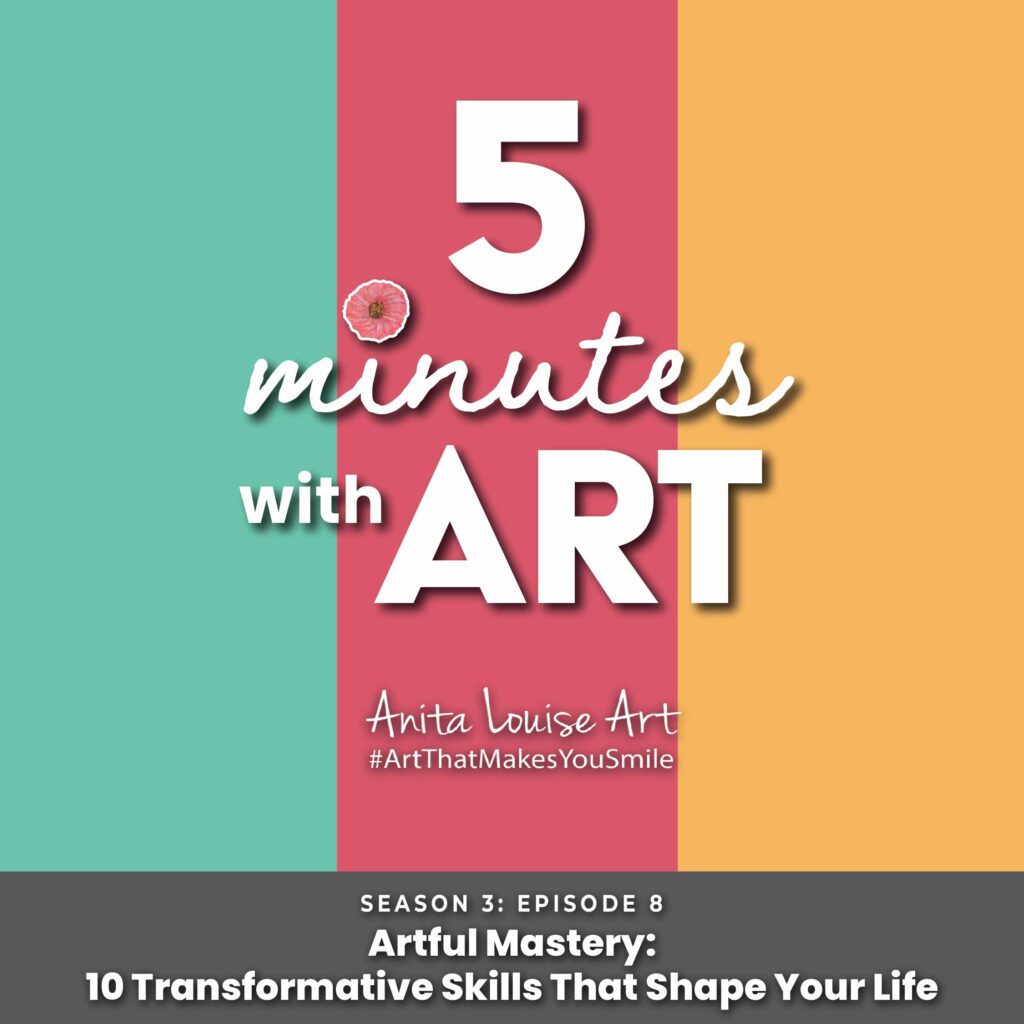
Anita Louise Art is dedicated to art education, great artists, and inspiring others to find and create their art. We love art that uplifts and inspires. #ArtToMakeYouSmile! #ArtToMakeYouHappy!
If you want to see any of my art, you can find out more by clicking here. If you are interested in what inspires me and my paintings, you can discover more by clicking here.
We have a free newsletter and would love you to be part of our community; you can subscribe to the newsletter by clicking here. I would be happy to talk to you if you have any questions. You can reach me, Anita, by clicking here.
Subscribe to our Anita Louise Art YouTube Channel with great videos and information by clicking here.
Join us for our podcast “5 Minutes With Art.” Spend just 5 minutes a week with us to discover and learn about great art and artists. You can find out more about our podcast by clicking here.
Related Questions
Why Should You Encourage Your Children In Art?
There are many benefits to encouraging your children in art. Some of these benefits of art include increased creativity, better hand-to-eye coordination, clearer self-expression, increased decision-making skills, improved visual-spatial skills, the teaching of perseverance, increased focus, you learn to see the world differently, it helps to build self-confidence, and it is just plain fun.
You can find out more about why we believe all children should learn art by reading our blog on 10 Top Reasons Why You Should Encourage Your Children in Art by clicking here.
What Are Some Traits An Artist Should Acquire?
There are many traits that an artist should acquire. Some of the traits are inspiration, the power of observation, the ability to develop a good memory, and having an imagination. An artist should also develop the art of persistence and patience, and discipline. And finally, if an artist can see their life as a great adventure, it will help them not only in life but in their artwork.
To discover more about this you can read our blog on 9 Traits That Are Important for Any Artist to Acquire by clicking here.

